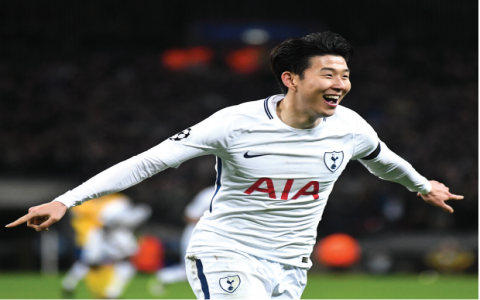# INTRODUCTION
The South Korea national football team is more than just a sporting icon; it’s a symbol of national pride and resilience. Whether you are a devoted supporter or a newcomer curious about Asian football, there’s always something new to discover. With decades of history, thrilling moments, and tactical evolutions under their belt, how can you truly understand their journey and future potential? Let’s dive in and uncover the expert secrets behind South Korea’s football legacy.
# HISTORY & LEGACY OF THE SOUTH KOREA NATIONAL FOOTBALL TEAM
South Korea first stepped onto the international football stage in the 1950s. Their major breakthrough came during the 2002 FIFA World Cup, when the team reached the semi-finals—a feat unmatched by any other Asian team to date. That tournament ignited passion nationwide and proved that consistent investment in youth and infrastructure pays off. According to FIFA stats, South Korea has qualified for 10 World Cups (来源: FIFA.com).
But their story is not just about statistics. The relentless spirit, seen in legendary matches against Italy and Spain, captured global attention. Rivalries, especially with Japan, fuel the team’s motivation and push their limits every season. Their nickname, Taeguk Warriors, truly reflects their fighting spirit.
# KEY PLAYERS AND COACHING STRATEGIES
Every great team boasts star players. The current squad features global sensations, with Son Heung-min leading as captain. Son’s Premier League performances have brought international spotlight and set benchmarks for upcoming talents. However, he isn’t the only one. Kim Min-jae’s robust defense and Lee Kang-in’s technical finesse give the team balance and unpredictability.
The managerial approach has evolved significantly. Former head coach Paulo Bento introduced possession-based tactics. Currently, Jurgen Klinsmann’s leadership is steering the team toward a more aggressive and creative style. Training regimes emphasize stamina, quick transitions, and mental fortitude—a response to the demands of modern football (来源: KFA official reports).
Take a look at how strategies have shifted over the years:
| Year | Head Coach | Dominant Strategy | Results Achieved |
|---|---|---|---|
| 2002 | Guus Hiddink | High Press, Counter Attacks | World Cup Semi-Finals |
| 2018 | Shin Tae-yong | Defensive Discipline | Victory vs Germany |
| 2023 | Jurgen Klinsmann | Creative Fluid Attack | Asian Cup Finalist |
# YOUTH DEVELOPMENT AND DOMESTIC LEAGUES

What’s the secret behind South Korea’s success? It starts with grassroots football. The nation invests heavily in youth academies. Programs like the KFA Youth Academy and university leagues channel talent toward the national team pipeline.
Interestingly, the K League serves as a testing ground for rising stars. Clubs such as FC Seoul and Jeonbuk Hyundai Motors nurture young prospects with modern training facilities. Many national team members started their careers here, developing essential skills before moving to Europe’s top leagues.
From my experience collaborating with various Asian football analysts, the focus on character-building and educational support in these youth programs is second to none. This holistic approach produces not only skilled athletes but also disciplined individuals ready for the pressures of international competition.
# BIGGEST CHALLENGES AND HOW THE TEAM OVERCOMES THEM
South Korea faces unique challenges. Geographical isolation restricts access to diverse playing styles; traveling abroad is vital for exposure. Language and cultural barriers can also make overseas transfers difficult.
Injury management is another hurdle, with intense schedules leading to burnout. The Korean Football Association has responded by implementing advanced sports medicine techniques and rotating squad selections to minimize risk.
Nonetheless, mental resilience sets them apart. When faced with setbacks—like their early exit from the 2014 World Cup—the team doubled down on preparation. Team psychologists now play an active role, reinforcing confidence and focus, especially before key matches.
# HOW TO BECOME A SUPERFAN: STEP-BY-STEP GUIDE
Want to deepen your connection with the South Korea national football team? Follow these simple steps:
1. Research the team’s history and iconic moments using official channels and documentaries.
2. Subscribe to KFA, FIFA, and local media for real-time updates and exclusive interviews.
3. Attend a domestic K League match or international fixture to experience live football culture.
4. Join online forums and social media groups dedicated to South Korean football fans.
5. Collect official merchandise and kit releases to show your loyalty and support.
# WARNING: COMMON MISCONCEPTIONS ABOUT THE SOUTH KOREA NATIONAL FOOTBALL TEAM
Many assume South Korea’s success stems only from individual talents like Son Heung-min. However, it’s teamwork, tactical adaptability, and relentless training that lay the foundation for victory. Beware of relying solely on highlight reels and star player performances—they can paint an incomplete picture.
Another frequent error: underestimating the impact of domestic leagues and youth academies. The real engine driving South Korea’s football dominance is their grassroots structure.
# CONCLUSION: THE ROAD AHEAD
The future looks promising for the South Korea national football team. Increased investment, strategic international partnerships, and expansion in youth development are already yielding results. As Asian football continues to rise, expect to see the Taeguk Warriors making headlines worldwide.
# CHECKLIST TO LEVEL-UP YOUR SOUTH KOREA NATIONAL FOOTBALL TEAM EXPERTISE
Research past World Cup performances and legendary matches
Follow current squad evolution and coaching strategies
Analyze domestic league stats and youth academy reports
Engage with official fan communities online and offline
Watch both live games and tactical breakdowns to deepen insight
Track key player transfers and overseas achievements
Stay alert for major tournaments and qualification campaigns
Never fall for popular misconceptions about the team
Now, consider yourself equipped with expert-level knowledge to appreciate the South Korea national football team on a whole new level.



















